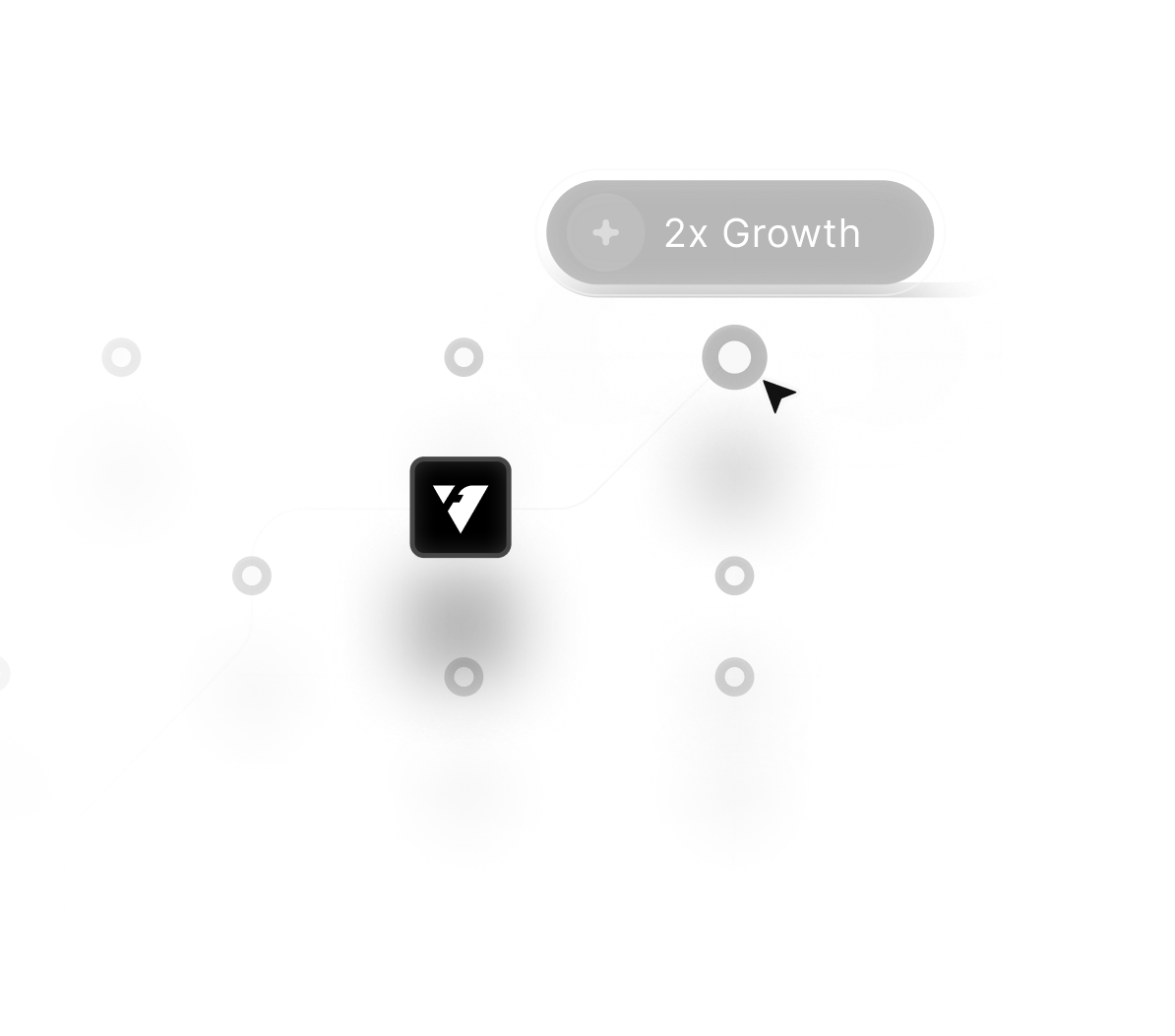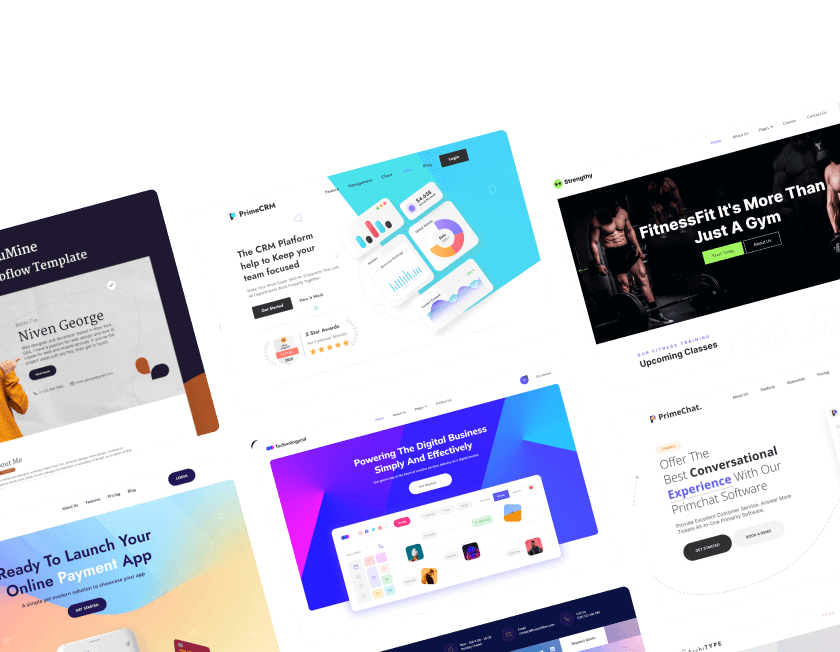January 3, 2026
Why Should Freelancers Choose No-code Website Development in 2026

In 2026, freelancers are facing an increasingly competitive market, where clients demand quick, scalable, and Cost-effective Website Solutions.
No-code website development is emerging as the game-changing solution for freelancers, allowing them to create powerful, responsive websites without needing advanced coding skills.
Tools like Webflow, Framer, and WordPress are at the forefront of this revolution, empowering freelancers to Build High-quality Websites faster and more efficiently.
This shift not only streamlines the design and development process but also lowers development costs, offering freelancers a competitive edge in a rapidly evolving digital landscape.
As businesses continue to prioritize speed, customization, and user-friendly designs, no-code platforms are providing freelancers with the tools they need to deliver results that Meet Modern Demands.
"Take control of your freelance website workflow easily.
Schedule your free optimization review today."
Freelancers Choose No-code Website Development
1. Learning the creation of websites without coding
No-code web development platforms, sometimes known as "no-code," are a revolutionary technology that allows anybody, even freelancers, to create completely functional websites without the need for traditional coding or programming.
These platforms provide simple visual interfaces that allow users to design, build, and distribute websites easily.

Platforms such as Webflow, Wix, and WordPress streamline the intricacies of coding languages, opening up web development to individuals with minimal technical expertise.
These website builder tools, operating on a no-code basis, offer diverse pre-made elements, templates, and integrations, greatly simplifying the creation of websites and web applications.
2. Freelance Worker Puzzle

Freelancers are on a constant journey, one where they balance the ambition to stand shoulder-to-shoulder with established web development agencies while tending to the diverse needs of their clients.
This path is a tapestry woven with numerous challenges inherent in traditional web development. Beyond the competitive market, freelancers grapple with a mosaic of intricacies: understanding each client's unique demands, meticulously adhering to project timelines, and wrestling with the intricacies of coding and development tasks.
It's a world where excellence is pursued relentlessly despite these hurdles, shaping a landscape where freelancers immerse themselves in the artistry and precision of web development.
3. Difficulties in Standard Web Development

Before we embark on the journey of no-code website development, let's take a moment to explore the challenges that freelancers face in traditional web development.
Constructing a website from the ground up demanded a deep well of technical knowledge and proficiency in coding. Freelancers found themselves dedicating considerable time and energy to grasping and mastering programming languages such as HTML, CSS, JavaScript, and PHP.
This learning curve posed a formidable obstacle for budding freelancers and consumed precious hours that could have been better spent on projects and connecting with clients.
Projects heavily reliant on coding often encountered issues and bugs, resulting in frustrating delays and extra work for freelancers.
4. Financial Boundaries and Timelines

Freelancers, much like professionals in different fields, face financial hurdles on their journey. Using traditional web development tools and frameworks can eat into the earnings they make from projects.
On top of that, clients often ask for quick turnarounds, adding more pressure. Balancing top-notch work with managing costs and meeting tight deadlines becomes an art freelancers need to master to succeed in their craft. It's a delicate dance where every step counts towards their success.
5. Trials of Traditional Web Development

While diving into the world of no-code website creation, it's critical to understand the challenges that traditional web development places on freelancers.
Building a website from the ground up required substantial technical knowledge and coding ability. Freelancers spend a significant amount of time and effort learning and mastering programming languages such as HTML, CSS, JavaScript, and PHP.
This learning curve not only posed a considerable challenge for aspiring freelancers, but it also took valuable time that could have been spent on project development and client acquisition.
Projects that relied heavily on coding frequently faced mistakes and bugs, resulting in aggravating delays and extra work for freelancers.
6. User-Accessible and Intuitive Design

The beauty of no-code website development lies in its accessibility. Gone are the days of spending extensive periods mastering complex coding languages. Thanks to intuitive drag-and-drop interfaces, designers can craft visually stunning and fully functional websites within mere hours or days.
This accessibility has democratized web development, welcoming a broader spectrum of freelancers—designers, marketers, and entrepreneurs previously sidelined due to their limited coding expertise.
7. Budget Effectiveness and Financial Oversight

For freelancers, cost-effective solutions are paramount. Traditional web development tools and ongoing maintenance costs could strain finances. Contrastingly, many no-code platforms offer subscription-based models, predictable and friendly to varied budgets. Freelancers can select plans that suit their requirements and scale up as their businesses grow. This affordability enables competitive pricing while preserving healthy profit margins.
8. Timely and Efficient Project Delivery

Freelancers value time as much as money. No-code website development significantly truncates project timelines. This efficiency allows freelancers to handle more clients, manage larger workloads, and meet deadlines without compromising quality. Enhanced efficiency not only boosts income potential but also elevates client satisfaction, fostering repeat business and referrals.
9. Adaptability and Customization Capabilities

No-code platforms prioritize simplicity without sacrificing flexibility or customization. Freelancers retain the ability to tailor websites to their client's unique needs, be it an e-commerce platform, a portfolio showcase, or a blog. These platforms boast an array of templates, widgets, and integrations, empowering freelancers to craft bespoke websites reflecting their clients' brands and visions. Adaptability across diverse industries and niches enhances freelancers' versatility and marketability.
10. Client Satisfaction and Portfolio Establishment

A strong portfolio is extremely valuable to freelancers. No-code programming empowers freelancers to create varied portfolios that showcase their abilities and agility.
Displaying a range of successful projects not only attracts more clients but also illustrates freelancers' capacity to handle different industries and project demands. The consistent delivery of visually stunning, fully functional websites elevates client contentment, fostering positive reviews and referrals—a significant boost for any freelancer's career.
11. Seamless Content Organization

No-code platforms, exemplified by tools like Webflow, often feature user-friendly content management systems (CMS). These systems simplify content creation and organization for freelancers.
Optimizing content for SEO becomes seamless as freelancers can easily add meta titles, descriptions, header tags, and alt text for images. Additionally, these platforms offer structured data options, allowing freelancers to employ schema markup for improved search engine comprehension.
12. Mobile-Oriented Design Strategy

In a mobile-driven landscape, having a mobile-responsive website is paramount for SEO triumph. No-code platforms prioritize mobile optimization, ensuring websites are both visually appealing and fully functional across smartphones and tablets.
This aligns with Google's mobile-first indexing, granting preference to mobile-friendly websites in search rankings. Freelancers can confidently design websites on no-code platforms, assured of catering to the expanding mobile audience.
13. Fast Website Response

Website speed significantly impacts search engine rankings. No-code platforms prioritize performance, often utilizing optimized code and content delivery networks (CDNs) to ensure rapid loading times.
Freelancers can construct websites that load swiftly, elevating user experience and enhancing the likelihood of higher search engine rankings.
14. SEO-Focused Templates and Site Structures

No-code platforms boast a plethora of templates and website structures inherently geared towards SEO. These templates often feature clean code, intuitive navigation, and well-structured content layouts—all pivotal elements for superior SEO performance.
Freelancers can effortlessly select templates aligned with their clients' industries and customize them to create SEO-optimized websites.
15. Utilizing SEO Plugin Features

Numerous no-code platforms facilitate the integration of SEO plugins, streamlining the optimization journey. Freelancers can seamlessly embed tools for keyword analysis, on-page SEO audits, and SEO suggestions into their website development workflow. These integrations offer instant feedback and guidance, empowering freelancers to enhance their websites' SEO performance in real-time.
Conclusion
The rise of No-code Website Development in 2026 is reshaping the freelancing landscape, offering unique advantages for both beginners and experienced professionals.
By leveraging powerful platforms like Webflow, Framer, and WordPress, freelancers can create visually appealing and functional websites without the need for in-depth coding expertise.
This not only accelerates project timelines but also opens up opportunities for freelancers to diversify their services, reach a broader audience, and boost their earnings.
As the demand for faster turnaround times and Cost-effective Web Solutions increases, mastering no-code development will be a key factor in staying relevant and competitive in the freelance web design industry.
Freelancers who embrace these innovative tools will be equipped to deliver top-tier websites that drive results, positioning themselves as Leaders in the Growing No-Code Space.

FAQ
1. Can freelancers create client websites without coding skills?
Yes, no-code platforms provide intuitive editors and templates for fully functional sites.
2. Are no-code websites customizable for unique client needs?
Absolutely, drag-and-drop tools and templates allow complete design flexibility.
3. Will these websites be mobile-friendly?
Yes, responsive layouts ensure websites perform flawlessly across all devices.
4. Can freelancers integrate e-commerce features easily?
Yes, many no-code platforms support product listings, payments, and shopping carts.
5. Do no-code websites support SEO best practices?
Yes, built-in SEO tools and clean structures enhance visibility on search engines.
6. How can freelancers track website performance for clients?
Integrated analytics dashboards provide insights into traffic, engagement, and conversions.
Table of Contents
Choose Our Service, Grow Fast!
Follow Us
Related Posts

February 19, 2026
Build consistent branding experiences with these curated Framer design guideline templates that are clean, responsive, and ready to edit effortlessly.
Build consistent branding experiences with these curated Framer design guideline templates that are clean, responsive, and ready to edit effortlessly.


Explore 35+ best Webflow design & development agency websites with top-tier UI/UX, fast performance, and conversion-focused strategies.
Explore 35+ of the best Webflow design & development agency websites with top-tier UI/UX, fast performance, and conversion-focused strategies.


Relaxation-focused Webflow templates in 2026 bring modern spa aesthetics, fluid booking flows, and soothing layouts for massage studios seeking timeless online appeal.
Relaxation-focused Webflow templates in 2026 bring modern spa aesthetics, fluid booking flows, and soothing layouts for massage studios seeking timeless online appeal.

Ready to Scale Your Project to the Next Level?
Let's take your project to new heights, reach out and see how we can help you.




















